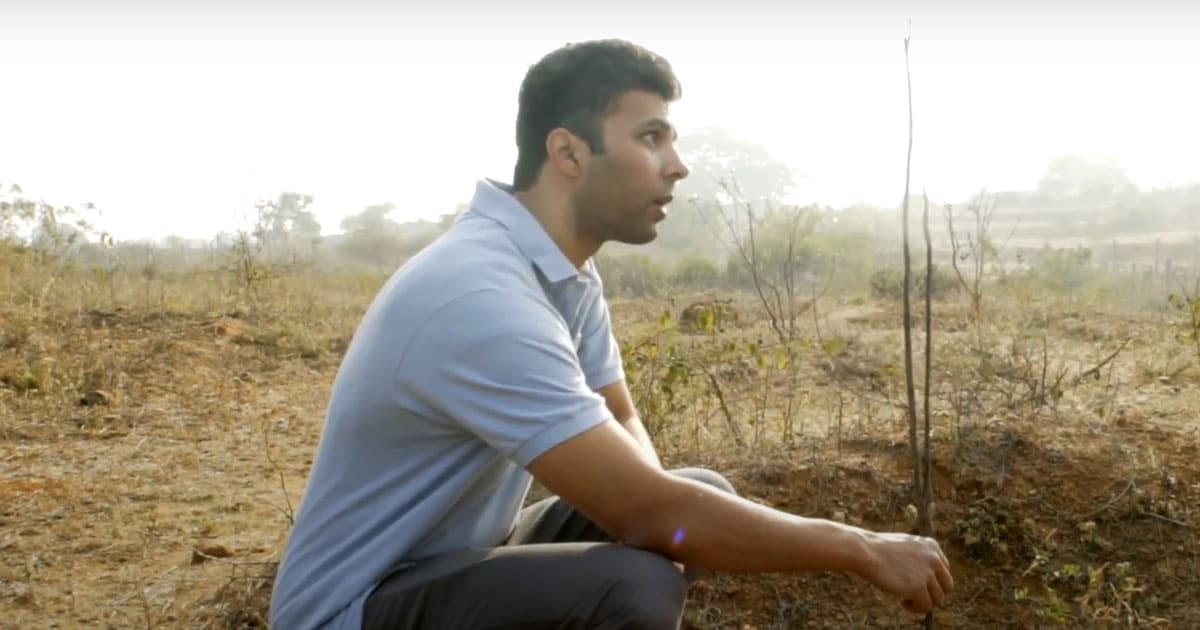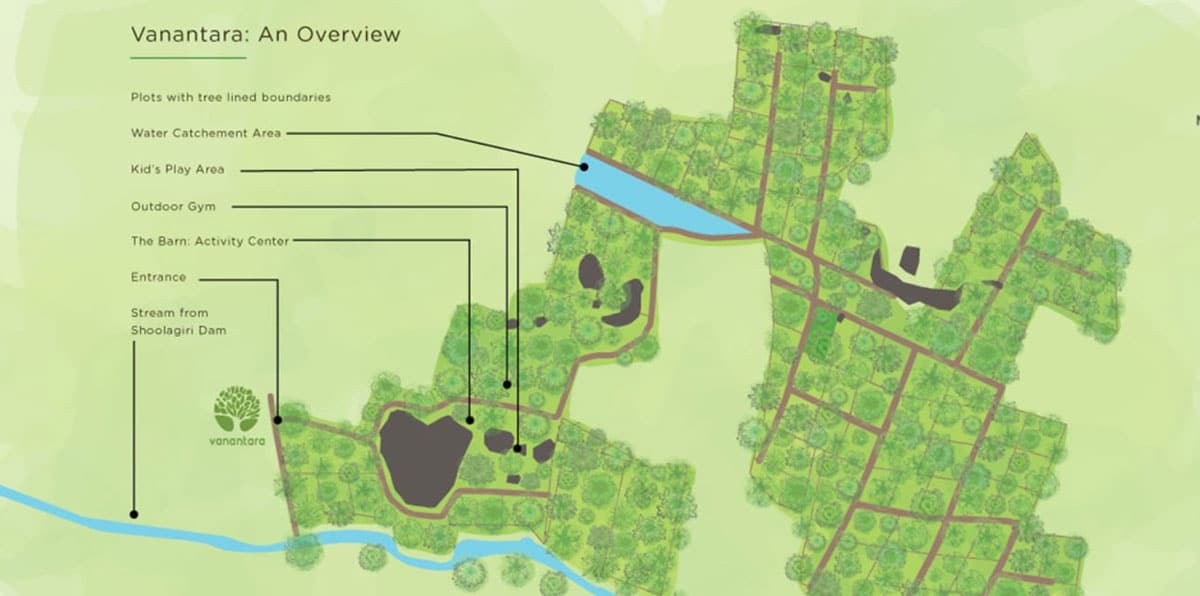It takes persistence and a positive mindset to leave a well-established profession and pursue something you are passionate about in life.
A qualified Chartered Accountant, Varun Ravindra, realized his calling for environmental preservation in the very early days of his professional career. He started working on the family farm in 2009, driven by his father’s love of nature and empathy for animals, and started contributing to his father’s organic agricultural practices.
His aim had always been to save the environment, provide a home for a diverse range of life, and ease the ‘global warming‘ that we now refer to as the ‘climate change catastrophe.’

At the same time, Varun began to notice a few public ownership (government-managed) lands being plundered and deforested. He thought that the most powerful way of protecting and reforesting the land for numerous considerate citizens is to own smaller portions of forestland.
As a result, he formed Vanantara in 2016 by purchasing 100 acres of property along the Karnataka-Tamil Nadu border, which presently has over 40,000 trees representing over 250 species.

Varun intended to provide “a safe experience” to individuals who desire to choose this pathway but are too rooted in the cities to do so. He also wishes to contribute significantly to combating climate change and in helping to keep and preserve the earth’s natural biodiversity.
He and the Vanantara team first forested the area before inviting like-minded people to join the movement. At Vanantara, they jointly developed a forest ecosystem with size, scope, and advantages that would not have been feasible if they had worked alone.
Vanantara is entirely self-sufficient in terms of farm inputs. A nursery for young saplings and an animal barn are included in the property.
At Vanantara, the focus is mostly on soil stabilization and establishing the ideal conditions for developing diverse species. Most soils have become inert as a result of decades of intensive use of chemical fertilizers and pesticides.
Also, read: This Duo Is Creating Mumbai’s First Dense Forest, Aims To Plant 10 Crore Trees By 2025 Across India
Composting, vermicomposting, the manufacture of fermenting bio inputs including such jeevamrut, feeding the soil with effective microorganisms, and the use of foliar sprays that function as development boosters are among some of the operations at Vanantara.
The animals at Vanantara contribute to the closure of the cycle by assuring self-sufficiency. Neither of the animals is for milking or slaughter; instead, they graze and cut down weeds while supplying farmyard manure.
A drip irrigation system has been installed to assure the steady expansion of the 40,000+ young trees by conserving water.
They’ve encouraged people to plant Miyawaki woodlands for the past three years. Some of the trees in this particular forest are now over 18 feet tall. Professional ornithologists and herpetologists have been encouraged to come to the site and undertake impromptu biodiversity checks.
In the previous four years, Varun and his team have planted 40,000 trees in Vanantara as part of a traditional afforestation program and another 40,000 plants across Bengaluru’s Miyawaki forests.
Also, read: Meet Dr. Qing Li – The Man Who Wants You To Walk More In The Forests For Your Own Benefits
Vanantara also created employment opportunities for several local farmers and is not impacted by the irregular harvest cycles. During monsoons, these farmers are free to maintain their crops while working at Vanantara the rest of the year, generating a degree of continuity and providing more robust livelihoods.
It also drew an influx of people from Bengaluru’s corporate world and successful companies, who view owning a piece of Vanantara as a way of giving back to the planet and a gateway towards a more connected life.
Varun and his colleagues are still planting at Vanantara, but they are now focusing on bringing the community together.

